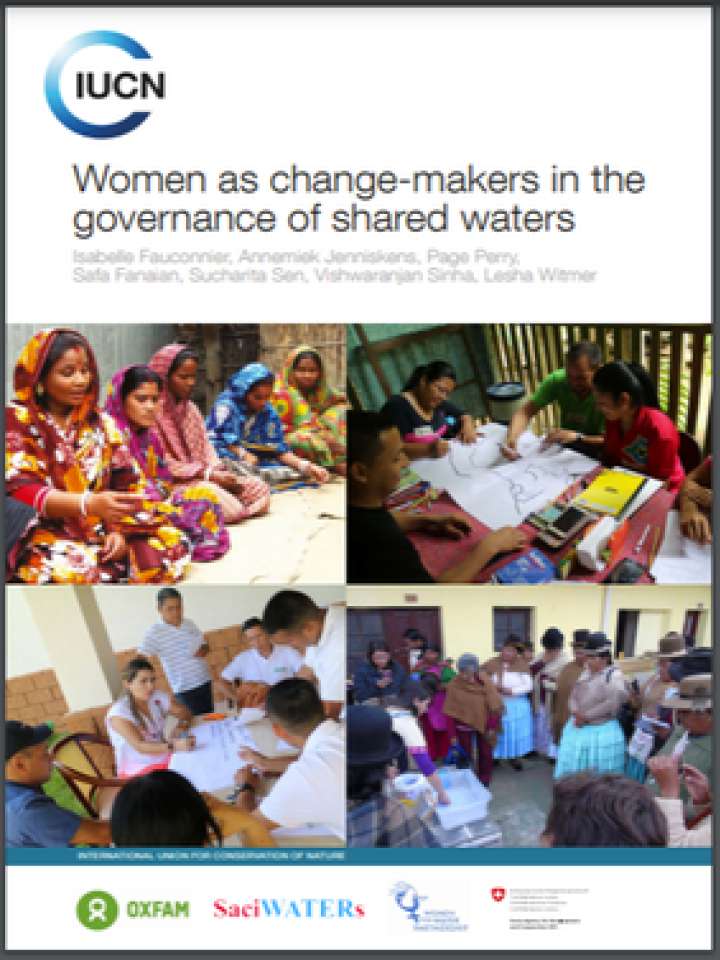Women as change-makers in the governance of shared waters
This paper addresses the issue of women’s participation and gender equality in the governance of shared waters, which has received insufficient attention to date in both the research and practice literature, yet action is happening on the ground. Women play key roles in generating change in the way water is used, shared, and allocated, from local to transnational levels and in spite of legal, regulatory and institutional frameworks that provide little space for their participation in planning and decisionmaking. This paper targets an audience of policy-makers, practitioners and researchers who are interested in taking action, policy and research further on these topics.
Beginning with a discussion of the reasons why women’s roles are overlooked, this paper tackles the four interlocking elements that make up the significance of women’s roles in how water is shared:
- Their deep practical experience and innovation in use and sharing of the resource;
- Their ensuing technical and socio-cultural knowledge about the resource;
- Their ability to disseminate and contribute their knowledge towards cooperative solutions;
- The value of their leadership, and their meaningful role in cooperative planning and decisionmaking to drive change.
Explore further
